Search
Remove Ads
Advertisement
Summary 
Loading AI-generated summary based on World History Encyclopedia articles ...
Search Results
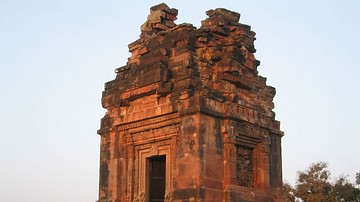
Definition
Gupta Architecture
The Gupta Dynasty (4th-6th century) in North Central India saw the first purpose-built Hindu (and also Buddhist) temples which evolved from the earlier tradition of rock-cut shrines. Adorned with towers and elaborate carvings, these temples...

Definition
Gupta Empire
The Gupta Empire stretched across northern, central and parts of southern India between c. 320 and 550 CE. The period is noted for its achievements in the arts, architecture, sciences, religion, and philosophy. Chandragupta I (320 – 335 CE...
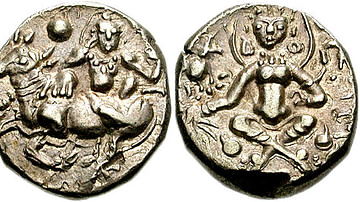
Definition
Gauda Kingdom
The Gauda Kingdom came into being in the late 6th century CE in eastern India, as a result of the political disintegration of the Gupta Empire (3rd-6th century CE). Its core areas were situated in what is now the state of Bengal in India...
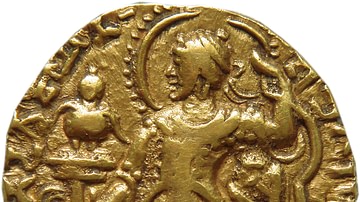
Definition
Samudragupta
Samudragupta (r. 335/350 - 370/380 CE) was the first significant ruler of the Gupta Dynasty. Having come to the throne, he decided to extend the boundaries of his empire to cover the multiple kingdoms and republics that existed outside its...
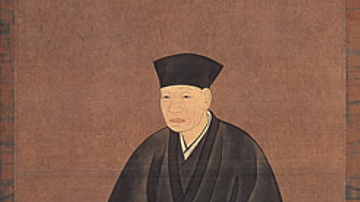
Image
Tea Master Sen no Rikyu
A portrait by Hasegawa Tôhaku of the celebrated tea master Sen no Rikyu (1522-1591 CE) who is credited with creating the established procedures for the Japanese tea ceremony.
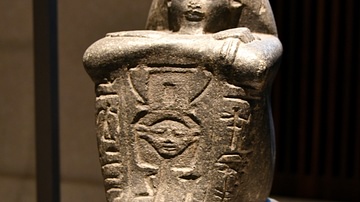
Image
Statue of Sen-nefer
Block statue of Sen-nefer. He was the chief steward of the pharaoh as well as a priest of several ancient Egyptian deities. Granodiorite. New Kingdom, 18th Dynasty, reign of Amenhotep III, 1388-1351 BCE. Probably from Bubastis (Tell-Basta...
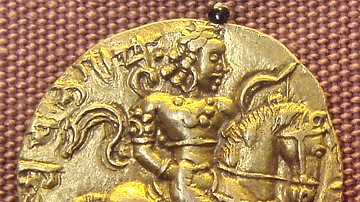
Definition
Chandragupta II
Chandragupta II (c. 375 CE - 413/14 CE) was the next great Gupta emperor after his father Samudragupta (335/350 - 370/380 CE). He proved to be an able ruler and conqueror with many achievements to his credit. He came to be known by his title...
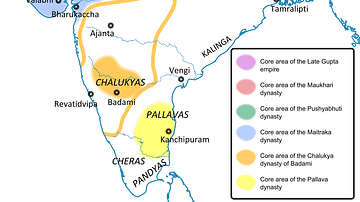
Definition
Maukhari Dynasty
The Maukharis (554 CE - 606 CE) rose as a power after the downfall of the Gupta Empire (3rd to 6th century CE) in the 6th century CE in northern India. The core area of their kingdom was situated in what is now the state of Uttar Pradesh...

Image
Extent of the Gupta Empire, 320-550 CE
This map shows conquests made by emperors of the Gupta dynasty in the 4th century CE and early 5th century CE. Of these three rulers—Chandragupta I (320 – 335 CE), Samudragupta (c. 335 – 375 CE) and Chandragupta II (c. 380 – 414 CE)—Samudragupta’s...

Image
Gupta Dynasty India, 320 - c. 550 CE - From Magadha to Empire: Culture and Conquest in Classical India
This map illustrates the rise and territorial expansion of the Gupta Empire in India between 320 and circa 550 CE, showcasing a period often regarded as a golden age of Indian civilization. Originating from the Magadha region (modern Bihar...